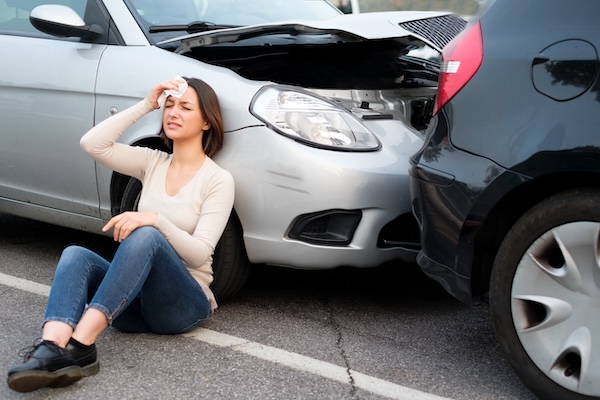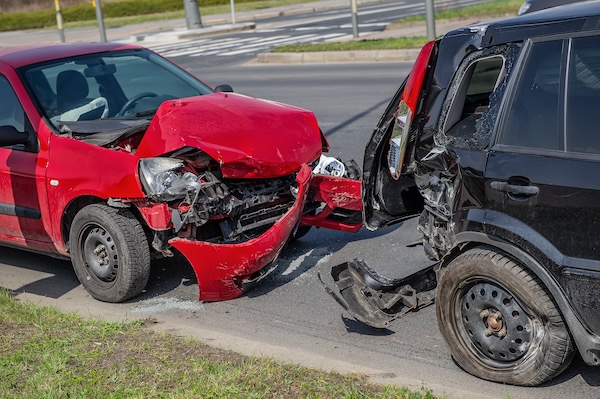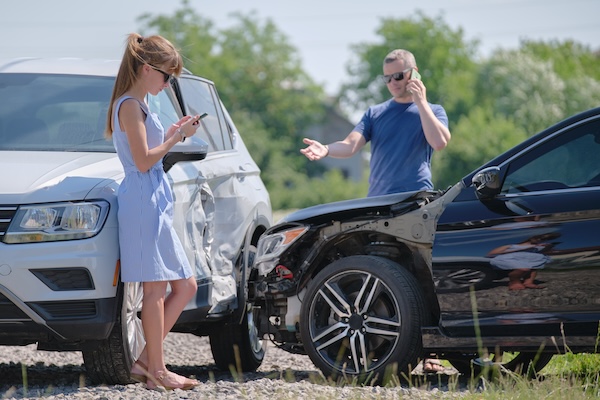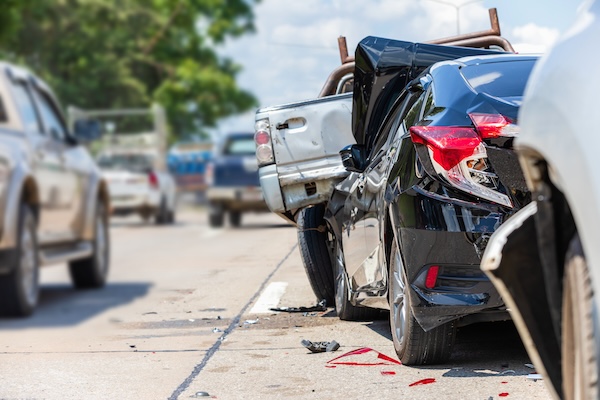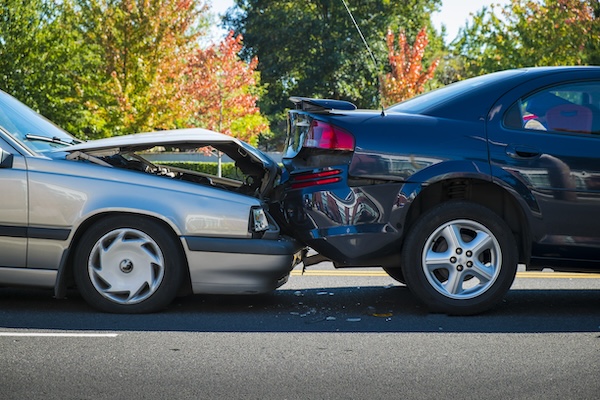Rear-end collisions are among the most frequent types of car accidents in South Carolina. Whether caused by distracted driving, brake failure, or unexpected braking, these crashes can result in a range of serious injuries. Understanding the implications of rear-end collision injuries in South Carolina is essential for victims seeking to recover damages. In this blog, we will explore the most common injuries sustained in these accidents and the legal avenues available for accident victims to pursue compensation.
What Happens When a Rear-End Collision Occurs?
A rear-end collision occurs when one vehicle crashes into the back of another. These crashes typically happen when the rear driver fails to notice that the vehicle ahead has slowed down or stopped. Rear-end accidents can happen at traffic signals, on highways, or in stop-and-go traffic. While some of these incidents may seem minor, even low-speed rear end collisions can cause severe injuries. When a rear end collision occurs, the force of impact can jolt passengers forward, often without warning, leaving them vulnerable to both visible and internal injuries.
Common Causes of Rear End Crashes in South Carolina
Rear end crashes in South Carolina often result from a variety of factors:
- Distracted driving, including texting or using a phone
- Tailgating or following too closely
- Brake failure or malfunctioning braking systems
- Brake checking by the lead driver
- Poor visibility due to weather or lighting
- Hazard lights not used properly to indicate a stopped vehicle
- Drivers involved not maintaining safe speeds in heavy traffic
Sometimes, a rear end collision is triggered by a chain reaction involving multiple cars, especially in dense traffic conditions.
Life Changing Injuries from Rear End Accidents
Injuries sustained in rear end collisions range from mild to severe. Accident victims often face life changing injuries that require ongoing medical treatment, rehabilitation, and sometimes even long-term care. These injuries can have a profound impact on one’s ability to work, socialize, and perform daily tasks. In extreme cases, they can lead to permanent disability and the need for lifetime support.
Whiplash and Neck Injuries
Whiplash is the most common injury associated with a rear end car accident. The sudden force of impact causes the head to snap backward and then forward, straining the neck muscles and ligaments. Symptoms may not appear immediately, but they can persist for weeks or even months. Whiplash can also result in chronic pain and limited range of motion.
Back Injuries and Herniated Discs
A rear end collision can cause herniated discs, spinal fractures, or soft tissue injuries in the back. Victims may experience sharp pain, numbness, or reduced mobility. These injuries are often painful and may require physical therapy, chiropractic treatment, or surgical intervention.
Traumatic Brain Injuries
Traumatic brain injuries (TBIs) can result from the head striking the steering wheel, headrest, or dashboard. These are among the most severe injuries and can lead to cognitive impairment, memory loss, speech difficulties, or even permanent disability. Post traumatic stress disorder may also accompany TBIs, adding an emotional dimension to the physical pain.
Facial Injuries and Broken Bones
Rear end accidents can cause facial trauma, especially if airbags deploy or glass shatters. Broken bones in the face, arms, ribs, or legs are also common. These injuries may necessitate reconstructive surgery and extended recovery periods. Fractures may affect mobility and require long-term rehabilitation.
Psychological Injuries and Emotional Distress
Many injured victims experience emotional distress caused by the trauma of the accident. Anxiety, depression, and post traumatic stress disorder are common after a serious car accident. These symptoms may be exacerbated by chronic pain, lost income, and changes in lifestyle. Emotional distress is often an important component of a personal injury claim.
Factors Affecting the Severity of Injuries
Several factors can influence the extent of injuries:
- Speed of the vehicles involved
- Use of seat belts and airbags
- Position of the occupants
- Type and size of vehicles involved
- Number of cars in the accident
- Whether the lead driver brake checked
More severe injuries are typically seen when high speeds, multiple cars, or lack of restraint systems are involved.
What To Do After a Rear End Collision in South Carolina
If you are involved in a rear end collision in South Carolina, take the following steps:
- Seek medical attention immediately, even if injuries are not apparent.
- Call the police and obtain police reports.
- Take pictures of the accident scene, including vehicle positions and property damage.
- Gather evidence from witnesses, if available.
- Do not admit fault or argue with the other driver.
- Contact an experienced car accident attorney to discuss your case.
Understanding Liability: Who Is At Fault in a Rear End?
In most rear end collisions, the rear driver is presumed to be at fault. However, there are exceptions, such as when the lead driver brake checks, drives erratically, or suddenly stops without reason. Determining liability is critical for any rear end accident claim. Your attorney will analyze traffic laws, accident scene photos, and witness testimony to help determine fault in a rear end accident.
Dealing with Insurance Companies and Insurance Adjusters
Insurance companies may try to minimize your claim or deny responsibility. Insurance adjusters often look for ways to reduce the amount they have to pay. They may offer a quick settlement that doesn’t cover all of your expenses. Working with a car accident attorney can help ensure you receive fair compensation for your injuries.
Why You Need an Experienced Car Accident Attorney
A personal injury attorney can help injured victims navigate the legal process. From gathering evidence to negotiating with insurance companies, an experienced car accident attorney can make a significant difference in the outcome of a car accident claim. They will also ensure you’re not taken advantage of by insurance adjusters and that all damages—including emotional distress—are considered.
Recovering Compensation for Rear End Collision Injuries in South Carolina
Victims of rear end collisions may be entitled to various forms of compensation, including:
- Lost wages and lost income
- Past and future medical bills
- Out-of-pocket medical expenses
- Property damage repair or replacement
- Emotional distress caused by the crash
- Pain and suffering
In serious injuries cases, maximum compensation may be awarded for ongoing medical treatment, permanent disability, and diminished earning capacity.
Filing a Personal Injury Claim
Filing a personal injury claim begins with collecting documentation, including police reports, medical records, repair estimates, and proof of lost income. Prompt action is essential because South Carolina has strict statutes of limitations for filing a personal injury case.
Pursuing Compensation and Claiming Damages
Pursuing compensation for injuries sustained in a rear end collision involves proving the other driver’s negligence. This includes showing that the at fault driver caused the accident and that you suffered damages as a result. You may also claim compensation for other injuries discovered during the course of treatment.
The Role of Evidence in a Rear End Car Accident
Strong evidence can make or break a personal injury case. Key evidence includes:
- Photos of the vehicle damage and accident scene
- Witness statements from bystanders or passengers
- Police reports detailing the collision in South Carolina
- Medical records showing the injuries sustained
- Expert testimony, including accident reconstruction specialists
This evidence helps establish liability and the extent of your injuries, making your rear end accident claim more compelling.
Understanding the Legal Process in South Carolina
Navigating a personal injury case in South Carolina involves several steps:
- Initial consultation with a car accident attorney
- Free case evaluation and legal strategy planning
- Filing a personal injury claim with insurance companies
- Negotiations with insurance adjusters for fair compensation
- Litigation if a settlement cannot be reached
- Trial and judgment if necessary
Each stage of the legal process is crucial in securing the compensation you deserve.
Why Choose a Personal Injury Attorney for a Rear End Accident Claim?
An experienced personal injury attorney understands the complexities of South Carolina law and how to handle rear end crashes effectively. They will guide you through the legal process, gather the necessary evidence, deal with insurance claims, and fight for your rights every step of the way. Their goal is to ensure you receive fair compensation for physical pain, emotional trauma, lost income, and medical expenses.
Free Consultation and No Obligation Services
Most personal injury attorneys offer a free case review or no obligation consultation to assess the strength of your claim. This allows you to explore your legal options without any upfront costs. Many attorneys also work on a contingency basis, meaning they only get paid if you recover compensation.
Take Action Today
If you or a loved one is suffering from Rear-End Collision Injuries in South Carolina, contact McDougall Law Firm for a free case evaluation. There’s no obligation, and you pay nothing unless we win your case. Call us today 843-438-4386 or fill out our online form to get started on your path to recovery.
Get the help you deserve—because your future matters.

